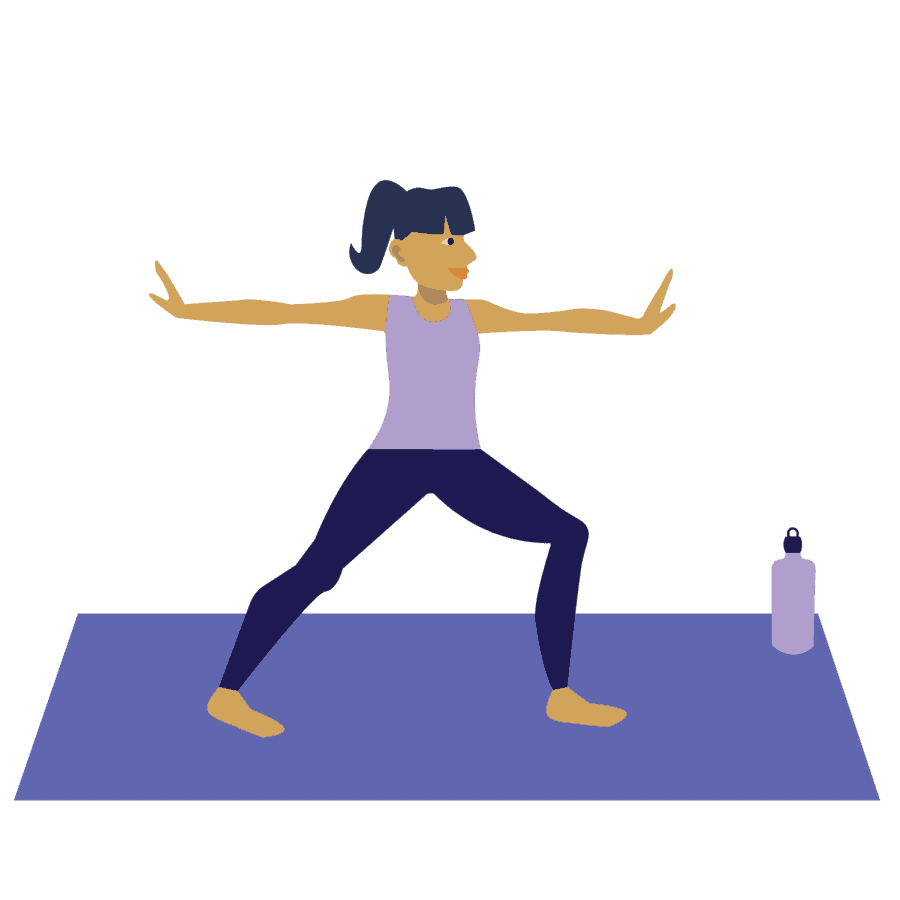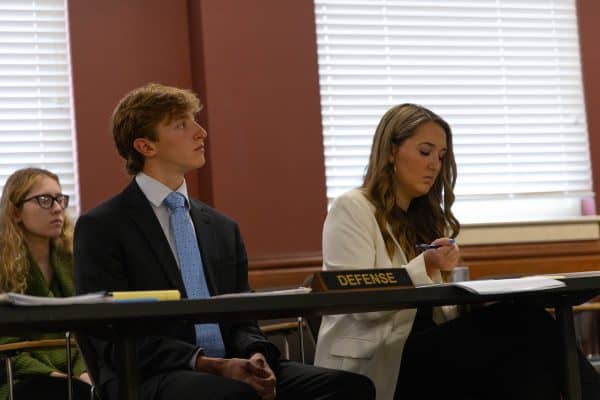How to Health: A discussion of insurance, primary care and more
March 2, 2022
Balancing health and wellness can be difficult for college students who are thrust into the adult world for the first time. Between classes, clubs, jobs and social lives, the mundane daily activities required to maintain a basic level of physical wellness often slip through the cracks.
Dr. Thomas Weida, the chief medical officer at the UA Student Health Center, said that when it comes to personal health, being proactive is the name of the game.
Weida said having a health insurance plan is central to staying on top of every aspect of wellness. It provides a security blanket in case of emergency and increases your flexibility to see primary doctors and specialists year-round.
But insurance can be expensive. Despite the passage of the Affordable Care Act, cost continues to be the leading factor for individuals who remain uninsured.
According to the U.S. Census Bureau, private, employer-based coverage is still the most prevalent form of insurance, making up over half of all plans and leaving those without a job with insurance benefits in the dark. Navigating the complex world of insurance can be a daunting task.
A 2017 study done by AgileHealthInsurance found that 72% percent of college students reported having difficulty finding insurance. High monthly premiums combined with the lack of centralized resources for comparison between plans make the process daunting for students.
The three basic aspects of any insurance plan are premiums, deductibles and copays.
Premiums are monthly installments paid directly to the insurance company. A deductible is the amount an individual is required to pay out of pocket to care providers before insurance coverage kicks in, and a copay is a fixed amount paid for a health care service after the deductible has been reached.
The difference in these three costs is mainly what sets insurance plans apart from one another. Deciding which to pay for is a matter of personal calculus.
“It’s a balancing act, like stocks: How much risk are you willing to accept?” Weida said. “Most plans by reputable insurance companies are going to be decent and probably proceed about the same. If you find one that’s really, really cheap, you get what you pay for.”
The Affordable Care Act now allows individuals to remain on their parents’ insurance up to the age of 26. The open insurance market it established at HealthCare.gov is a free resource with detailed information about different insurance plans and allows price comparison between qualified plans.
At a minimum, Weida said students should have a plan that covers significant illness if they end up in the hospital.
The Student Health Center offers a University-sponsored insurance plan through UnitedHealthcare, available to all students currently enrolled in five or more credit hours. Beyond that, open-market plans are available through HealthCare.gov with enrollment from Nov. 1 to Jan. 15 of every year.
Despite the barrier that high deductibles and premiums can place, the consequences of being uninsured can prove catastrophic. Medical debt is the leading cause of personal bankruptcy, and can build up quickly if you’re paying for all care out of pocket. It also lowers the cost for regular doctor visits, which helps prevent larger health problems from building up in the future.
“Most health insurances will cover preventive care without a copay, so that makes it easier to access the right things to do,” Weida said.
As much as personal health and insurance should be a part of every student’s health, there are many other aspects of health that students should care for on a daily basis.
“Working out is good for you because it not only helps physical health, but it also manages your stress levels and increases endorphins in your body which makes you an overall happier person,” said Bella Martina, a freshman news media major and employee at HOTWORX.
Working out is also mentally beneficial since it can increase endorphins, which can make people happier and relieve stress.
“When you’re less stressed, you are less likely to get sick, and it’s just easier to put working out in your everyday life in my opinion,” Martina said.
Working out everyday isn’t always an accessible option for everyone, whether that be because of schedule, disability or location. Even though Martina works at a workout studio, she’s also struggled with working out on a day-to-day basis. In high school she was always “on it,” but in college, it can be hard to keep up with a routine.
“Now I have completely changed, and I’ve noticed it in not only my personality, but physically as well,” Martina said.
Working out helped Martina create a better sleeping pattern that’s turned her into a morning person.
The transition from high school to college was difficult, but Martina adapted to a new schedule and made time for her workouts that have benefited her. When Martina started making working out a part of her routine, it helped make working out a “mindless act.”
Properly caring for one’s health requires college students to become aware that they’re not invincible and that they won’t be young forever.
“Health is definitely something I think all students take for granted,” said Alaina McDuffie, a sophomore majoring in public relations. “Really, most of us don’t think about it until it impacts other parts of our life, like our social lives or other school obligations.”
Approaching physical activity and your diet in a more mindful way can help you take steps to make your health a priority.
In terms of primary care, keeping prevention in mind is key. Weida said small, daily changes to the routines and habits of young adults can make all the difference.
“Activity or exercise, getting proper sleep, because pulling these all-nighters, that’s not good for you,” Weida said. “In other words, if on the weekend you stay up until 4 in the morning and Monday you get up for an 8 o’clock class, that’s not going to work out so well.”
Weida said the most dangerous thing a college student can do is hold the belief that nothing bad could happen to them.
“At your age, you’re invincible, or at least, you think you are,” Weida said. “It’s not necessarily expressed, but a lot of people seem to think ‘Well, I’m fine now, why should I change?’ But you don’t realize how much paying attention now sets you up for later in life.”
Some students struggle with this more than others. Cameron Heiser, a sophomore majoring in creative media, said he stands in the middle ground between healthy choices and overindulgence.
“I count myself lucky that I haven’t had any serious medical issues, but I think it’s because I don’t completely think ‘Oh, nothing can happen to me,’” Heiser said. “Every time the consequences of my actions catch up to me, it’s a pretty humbling experience.”
Maintaining health doesn’t stop at keeping up with appointments and listening to your body.
Weida said finding one primary care physician greatly impacts a patient’s overall ability to care for their health. The trust built in a strong relationship with one’s primary care doctor, as well as the wealth of knowledge accrued, results in more thorough and accurate diagnoses and care.
For many students, taking time to find one physician is a struggle that prevents them from seeking the care they need.
“I’ve had an extreme fear of doctors for a while, and anything medical freaks me out,” said Gabrielle Gunter, a sophomore majoring in English. “I’ve definitely gone to the doctor less since being here … because at home, I know there’s a doctor there who I trust, but I don’t have that at school.”
Taking care of your body today, especially while you’re still in college, helps ensure that minor issues don’t compound into life-threatening conditions. College doesn’t last forever, so it’s best to begin creating healthy habits while there are plenty of University-provided resources to fall back on.
The University’s Student Health Center is a wellspring of services, offering everything from wellness visits to psychiatric care, catered toward UA students. While it can be daunting, take the next step in personal care and wellness. Your body will thank you.
This story was published in the Health Edition. View the complete issue here.
Questions? Email the culture desk at [email protected].











